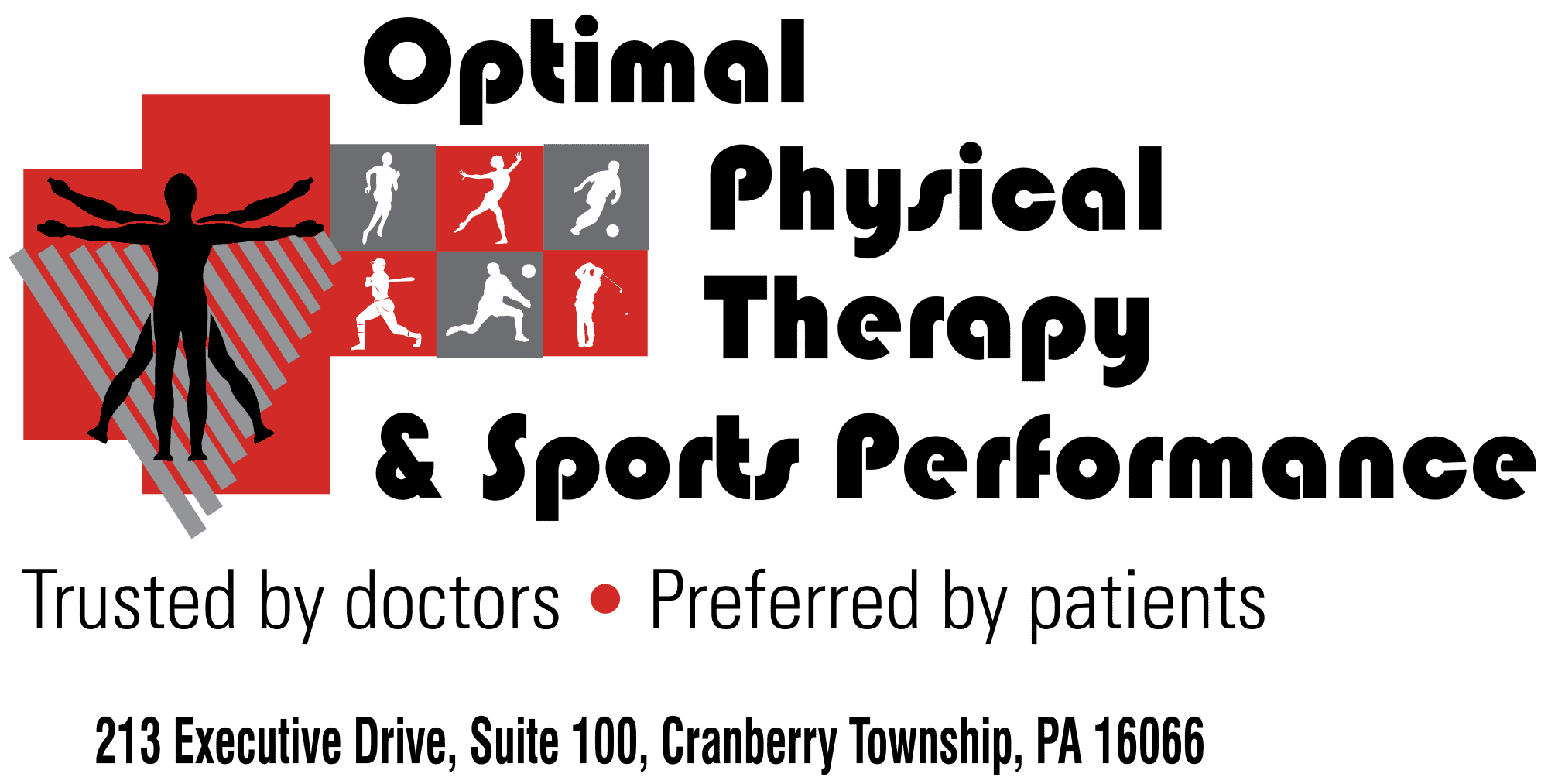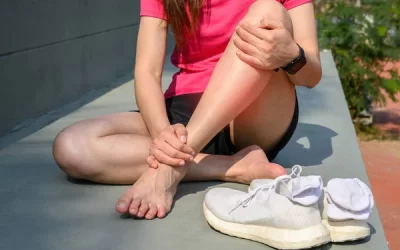Sleep is vital to all our body systems. Making sure that you are getting a good night’s sleep is very helpful in assisting your body to heal from injury or surgery. Sleep is an important part of our physiology and is often an overlooked piece of the puzzle while you are recovering from an injury, surgery or if you have a chronic disease that may require more rest than usual.
It is estimated that as many as 40 percent of Americans suffer from some type of sleep disturbance. Acute or chronic pain conditions can contribute to sleep disturbances. Sleep is the body’s repair mode. It is with sleep that our heart rate slows down, calcium and minerals are added to our bones, and our muscles repair. In the deeper phases of sleep, our body temperature drops and heart rate and muscle tone are at their lowest. In this stage, our master gland, the pituitary, secretes growth hormone which greatly helps tissue repair and replacement.
If you are recovering from an illness or injury and have trouble sleeping, it is worth your while to try to address the issue. Adults need between seven and nine hours of sleep per night while teens require between eight and nine hours.
Check yourself with the following questions to see if you might have a sleep disturbance:
Do you…Snore loudly? Stop breathing or gasp for air while sleeping? Feel sleepy or doze off while watching TV or reading? Have trouble falling asleep within 30 minutes of going to bed? Have trouble sleeping 3 or more nights a week? Wake more than once a night? Not feel rested upon awakening? Have unpleasant sensations or uncontrolled movement in legs or arms? Experience interruptions in sleep from dreams, pain, noise or light? Take a medication that may alter sleep?
If you answered yes to any of the above, speak with your physician to see if further medical workup is needed. In the meantime, here are a few things you can do to help yourself get a good night’s rest:
- If you are in pain, make sure you are taking your pain medications as prescribed so that pain is not limiting your sleep. Speak with your physician if night time pain remains a problem.
- Adhere to a regular sleep schedule. This will help your body clock and body rhythms by getting to bed by a certain time every night.
- Establish a regular bedtime routine. This helps to train the brain to recognize that it is getting ready for sleep. Quiet activity for 30 minutes before bedtime is helpful. Computer time, scrolling on your phone, video games and TV may overexcite your nervous system and make falling asleep difficult.
- Create a stable sleep environment. The room should allow for darkness, quiet, layered bedding and a stable room temperature as well as no powerful odors such as a strong air freshener.
- Alter eating and or drinking patterns. You may need to reduce or eliminate caffeine or alcohol from your diet. Eat 3 to 4 hours before bed. If you want a small snack, one that includes protein, calcium and a carbohydrate can promote sleep.
- Moderate exercise should be done at least 4 to 5 hours before sleep.
- Toileting habits may also help. Try to void before going to bed so that you are not awakened during the night.
Getting enough sleep is very important to helping your body do its wonderful magic of healing. Your physical therapist may also be able to give you positioning suggestions for a good night’s rest while considering your specific injury or condition.
General Sleep Position Suggestions for Certain Musculoskeletal Conditions (Please consult your physician if you have any serious concerns about your sleep position or if you have had recent surgery and need to follow specific recommendations):
Back Pain: Back pain can come from many types of spinal issues:
Degenerative Disc Disease- These persons may prefer to sleep on their stomach as this may take the pressure off the disc space. A relatively firm mattress and a flat pillow under the stomach and hips can also relieve stress on the low back. An additional pillow under lower legs above ankles can be helpful. If concerned about neck position while on stomach, a quarter turn prone position which is a combination of a posture that is slightly on stomach and on side may also help with use of a body pillow.
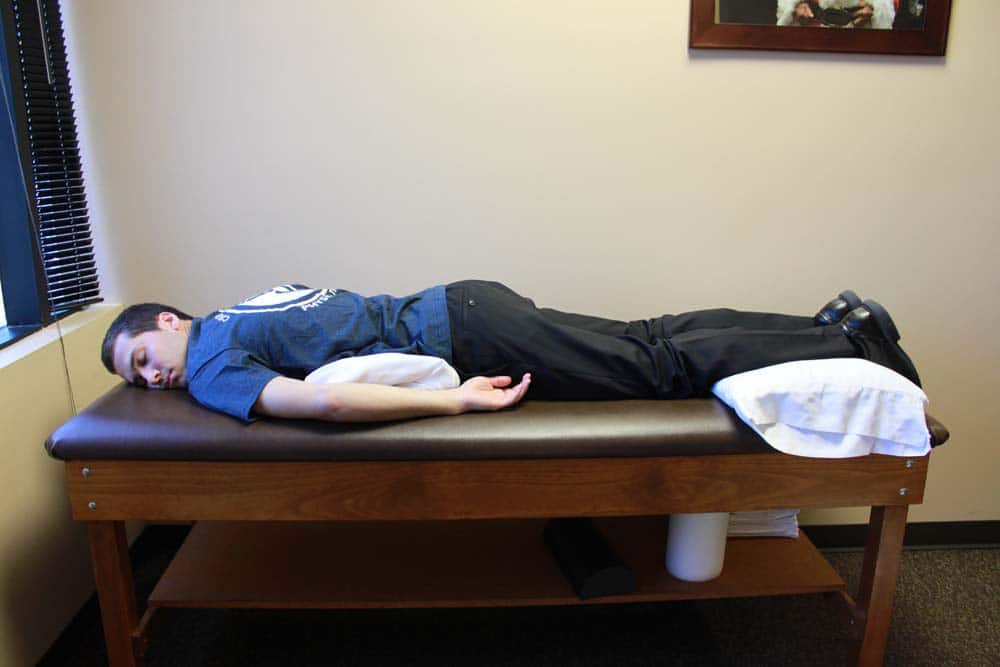
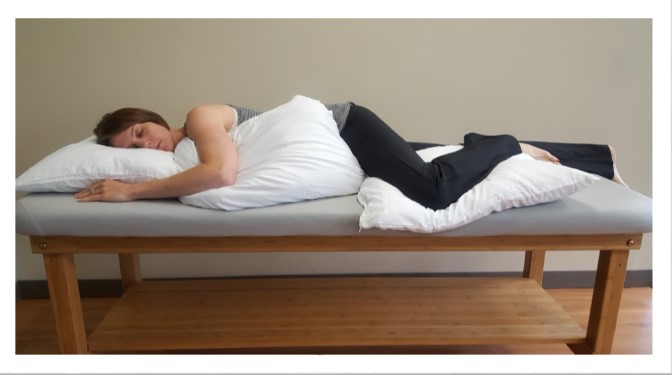
Osteoarthritis- The facet joints of the spine are affected here. By lying on your side with knees bent, the facet joints can open and relieved of pressure. A pillow between the legs is helpful. Also, some persons have found that a reclining chair or adjustable bed can also be comfortable for sleep.
Spinal Stenosis- Lying on your side with legs bent and a pillow between knees can relieve pressure off nerve roots that are being pinched. These persons may also like sleeping in a recliner or adjustable bed.
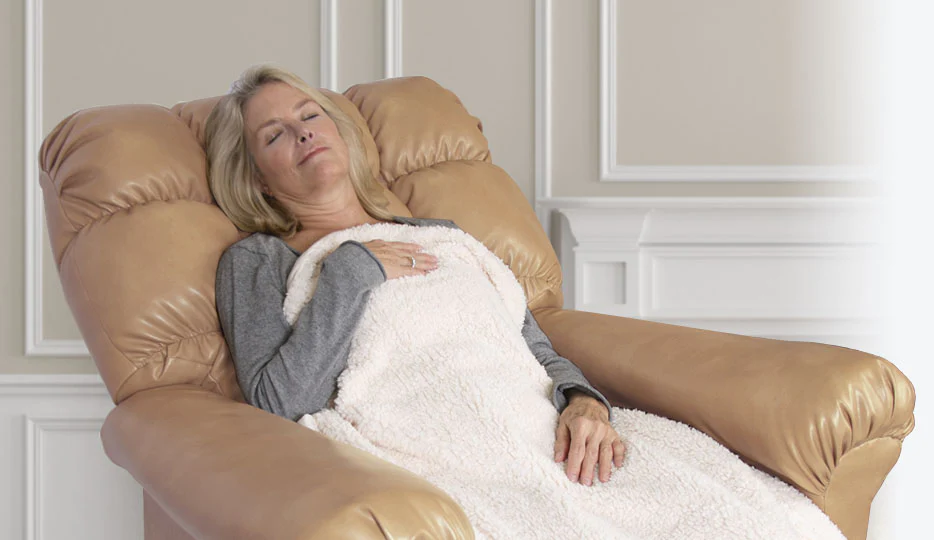
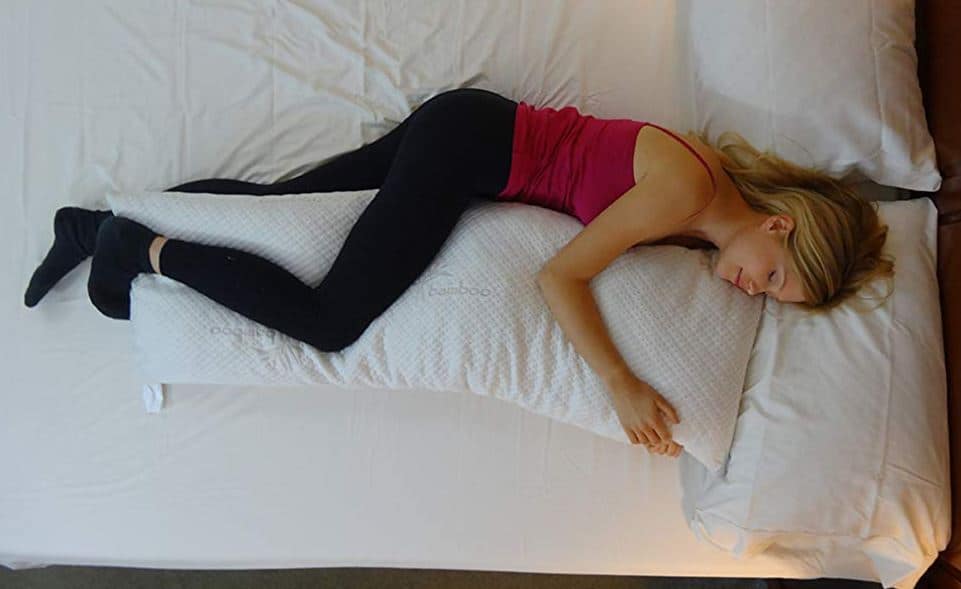
Herniated Disc- In this condition, the position of the disc herniation may determine what is most comfortable. If the disc is more centrally herniated, the person may feel most comfortable on stomach with flat pillow support. For foraminal herniated discs, sleeping on side will be most comfortable.
Hip Pain: Some patients prefer not to sleep on the sore hip. A pillow between the knees can reduce stress if sleeping on either side.
Hip Bursitis: Too firm a mattress can be uncomfortable for a person with hip bursitis who prefers side lying. Adding a soft mattress cover can provide some additional comfort as can using a pillow between the knees.
Shoulder Pain: Shoulder issues often cause patients who are used to sleeping on a certain side problems if it is their affected side. Adding a softer mattress cover may help. Switching to the other side and using a small pillow under the affected arm can help with positioning as can side lying and hugging a body pillow which supports the affected arm.
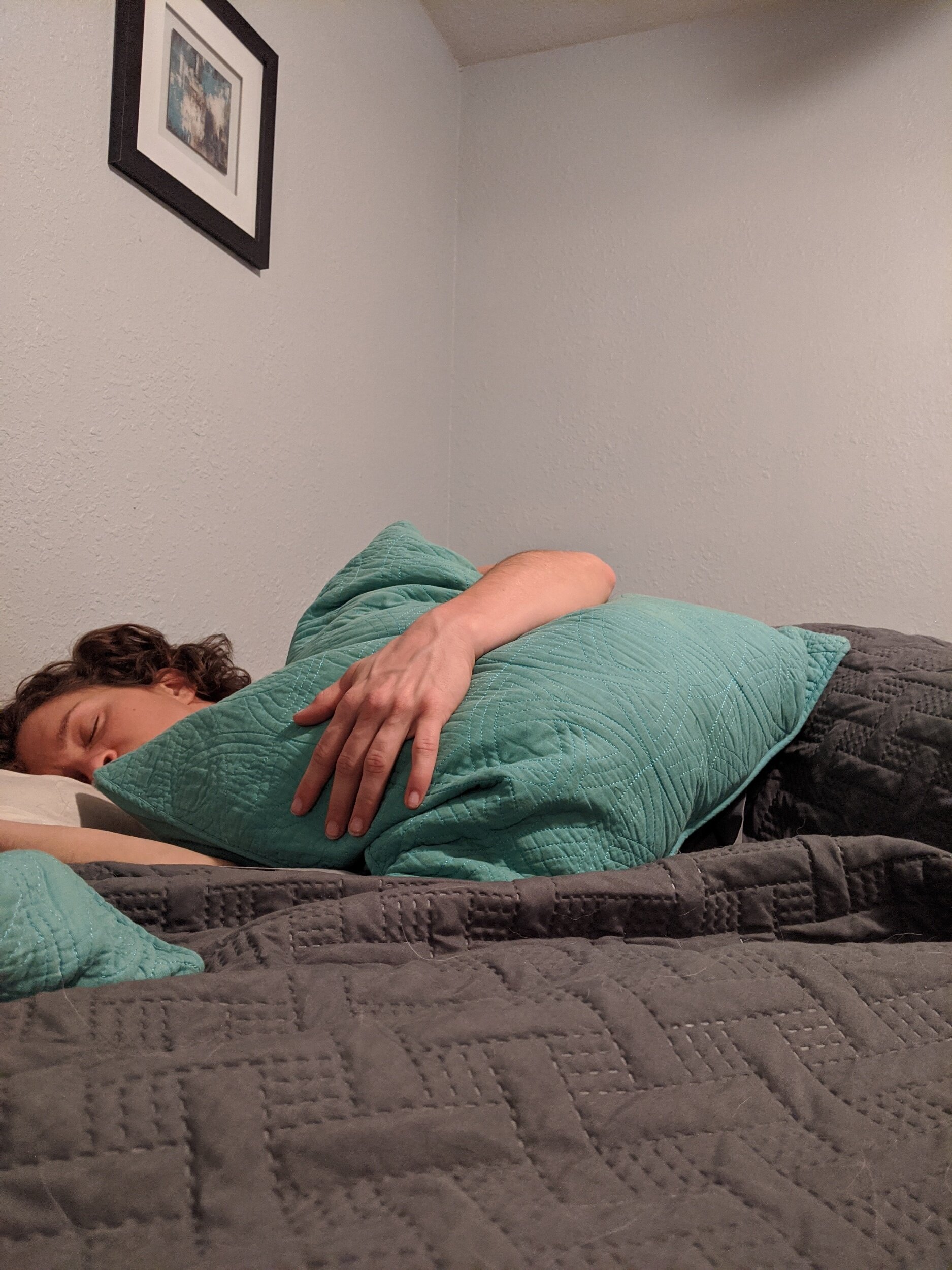
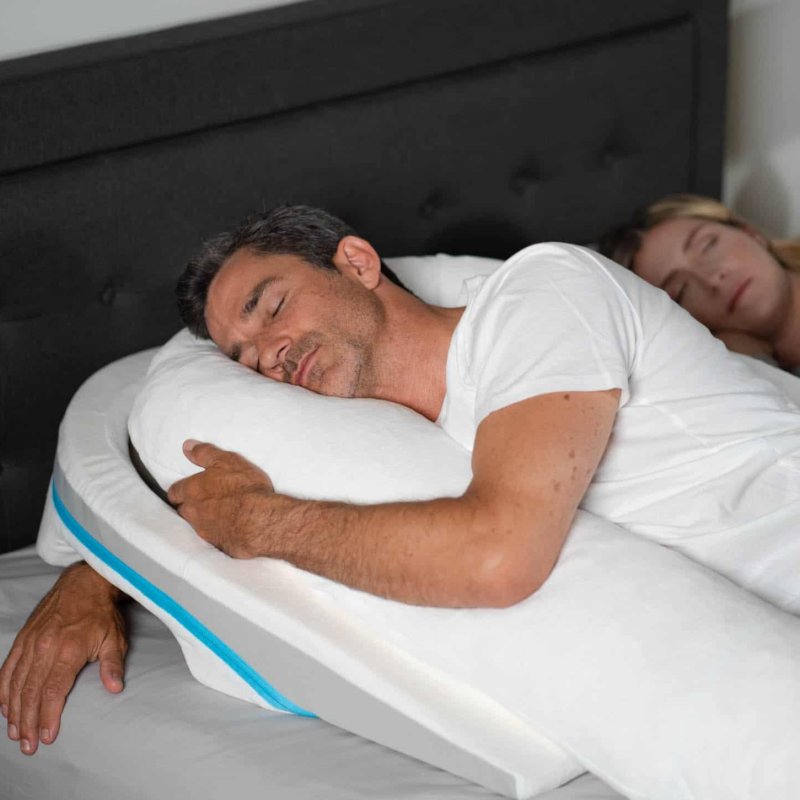
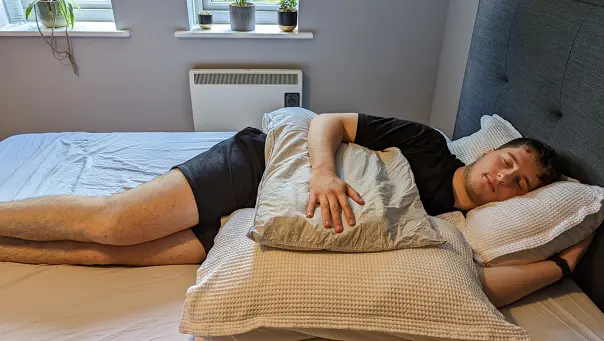
Please discuss your sleep concerns with your health care professionals on your team. There are more answers out there than you may think. It is very important to get good sleep for a good quality of life and to maintain good health.
